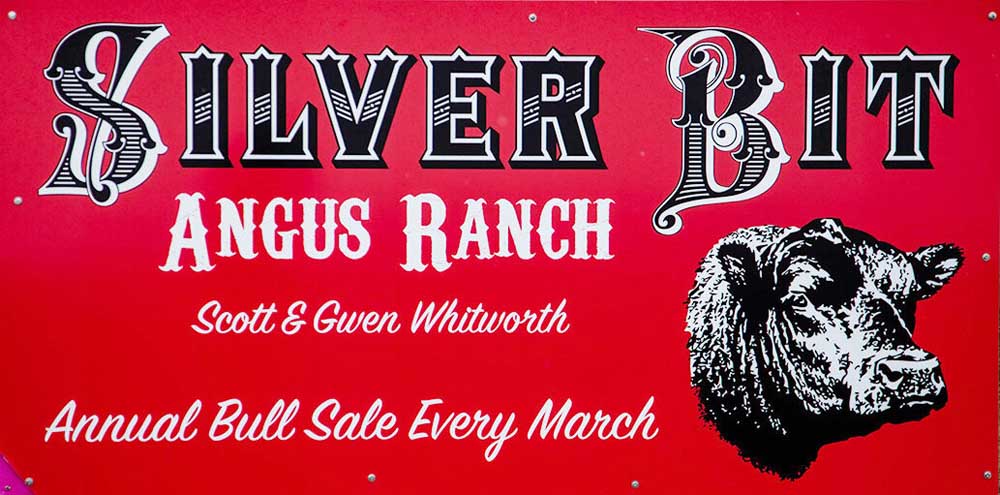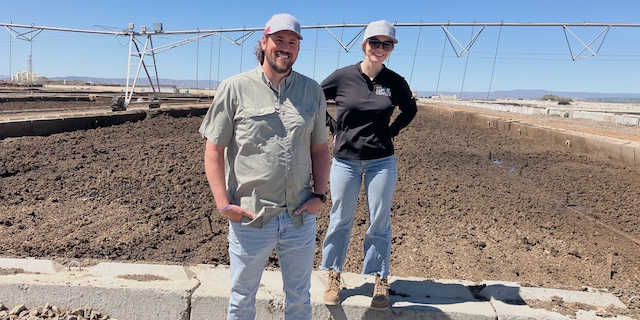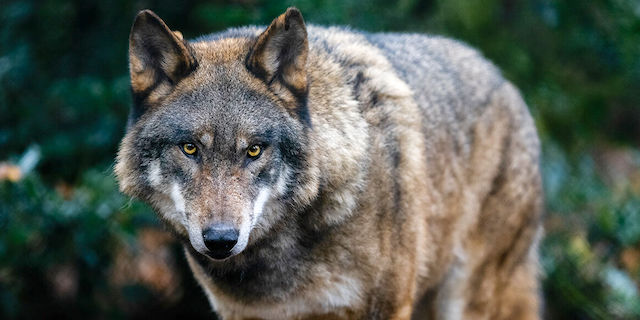Silver Bit Ranch: Producing hardy Angus for rugged country
Published 7:00 am Thursday, December 9, 2021

- Silver Bit Angus Ranch produces bulls capable of thriving at higher altitudes.
MAY, Idaho — Scott Whitworth raises Angus cattle in the Pahsimeroi Valley near May, Idaho, in some of the most rugged ranch country in the state.
He started with a few cows his father gave him, then purchased more cows in 1973, at age 19, with a loan. He bought his first purebred Angus in 1980, and his first ranch in 1982 — from his family. He has since added more ranches and runs about 1,400 cows on about 3,800 acres plus leases.
He started keeping the top 20% of his bull calves, selling bulls to family and neighbors. The first purebred Angus cows he bought were a disappointment — most were unable to handle the harsh environment.
It took a lot of culling, and breeding to good AI sires to move the herd in the direction he wanted, but it paid off.
He developed a herd of good purebred and commercial cattle that could do the job. Fertility is one of the most important traits, and he feels it’s important to raise bulls that sire daughters that do well in rough country and not come up open.
The cow herd calves in February and March so they can be bred before going to summer range. Most of the cows calve on their own, and very few heifers need help. With good teats and sound udders, there’s also less work during calving because the cows can take care of their calves and get them up and going without assistance.
Ranchers who look at his cow herd are usually interested in buying bulls, knowing they will sire good daughters, and most of the bulls he sells can be used on heifers.
“We’ve sold bulls now for 40 years, first by private treaty, and then here at the ranch. Our 30th auction sale was March 31, 2021,” he said.
“Our goal has always been to produce all-around cattle that will work in our harsh country and hold their flesh and have good udders, feet and legs and good disposition,” he said. He doesn’t want cattle that might cause problems for the commercial rancher.
“We expanded our purebred operation by using embryos from our best cows, and purchased two cows from Schaff’s Angus Valley. One of them is the mother of the world-record selling bull that sold for $1.9 million at Schaff’s 2019 sale,” said Scott. “In the past five years we have implanted almost 1,000 embryos into our commercial cows to raise more purebreds.”
All the registered bulls Scott sells are DNA tested to verify parentage and check for all potential genetic diseases. He has found Angus Expected Progeny Differences to be very reliable.
Bulls offered for sale are also Pulmonary Arterial Pressure-tested. “This trait is very heritable. The cattle that have higher PAP EPDs won’t work for customers who run cattle at high elevation,” he said. “Our lower ranch is 5,200 feet elevation but some of the bull pasture is over 6,000 feet. If a bull has a PAP problem (leading to brisket disease) it will show up here.”
Disposition is also important. “We always pay attention to disposition; the last thing we’d want is for someone to get hurt by one of our bulls. We want these bulls to be able to be by themselves and not get on the fight. We cull some bulls every year before they are sold, if they have a disposition problem,” he said.
“We have customers that have bought bulls from us for 40-plus years. After our sale, I deliver all the bulls within about a week. Most of them go to ranchers in Custer and Lemhi counties,” Scott said.
Ranchers know these bulls will work well in this part of the country.






